
What are Behavioral addictions such as gambling and gaming ?

An individual develops a dependence on a certain habit or activity as opposed to a substance in a behavioral addiction.
A variety of behaviors, such as gambling, gaming, shopping, sex, or internet use, might be considered behavioral addictions.
The inability of a person to regulate their gaming habit in the face of adverse effects distinguishes gambling addiction from other behavioral addictions.
Gambling addicts frequently continue to gamble even when it causes them to have trouble with their money, their relationships, or the law.
Another type of behavioral addiction is gaming addiction, which involves engaging in excessive gaming behavior despite unfavorable effects.
This may entail staying up late playing video games, putting off other obligations, and going through withdrawal when playing is prohibited.
The effects of gambling and gaming addictions on a person's relationships, relationships with others, and overall quality of life can be profound. Therapy, support groups, and medication are frequently used in the treatment of behavioral addictions.
Process addictions are another name for behavioral addictions, which include gaming and gambling since they include a certain behavioral process that develops into a compulsive habit. Because they don't entail consuming drugs or alcohol, these sorts of addictions differ from substance addictions.
Even though behavioral addictions don't always include drugs, they can nevertheless have a profound effect on the body and brain.
For instance, excessive gambling or gaming can result in alterations to the brain's chemistry and structure as well as higher levels of stress and physical health issues like eye strain, carpal tunnel syndrome, and obesity.
Addictions to behavior frequently start as a coping mechanism for underlying problems like anxiety, sadness, or trauma. In some circumstances, they might also be connected to underlying problems with compulsivity or impulse control.
Effective treatment for behavioral addictions often combines several methods, such as therapy to address underlying emotional issues, accountability in support groups, and medication to relieve feelings of despair or anxiety.
In order to successfully manage a behavioral addiction, it is ultimately important to get help as soon as you can and to be prepared to change your lifestyle drastically in order to stop the pattern of obsessive behavior.
A person's risk of acquiring a behavioral addiction may also be increased by a few risk factors.
A personality type that is prone to impulsivity or sensation seeking, a history of trauma or abuse, or living in a community where gaming or gambling is commonplace are some of these risk factors.
Furthermore, some games or gambling activities could be more addicted than others.
Slot machines and other types of gambling, for instance, may be more addictive than games that reward players less frequently.
It's also crucial to remember that not everyone who gambles or plays video games becomes addicted.
However, it's critical to be aware of the dangers and to get support if you feel you are having trouble reining in your behavior.
Treatment for behavioral addictions can be difficult, and it frequently calls for a lot of the person seeking help to put in work and commitment. However, it is possible to beat a behavioral addiction and take back control of your life with the correct help and tools.
Cognitive-behavioral therapy (CBT), which can assist people in recognizing and altering harmful thought patterns and behaviors, is frequently used in the treatment of behavioral addiction. Other types of treatment may include family therapy, which can assist loved ones in understanding and supporting the patient's rehabilitation, and motivational interviewing, which can assist people in developing the drive and abilities required to change their behavior.
Support organizations like Gamblers Anonymous or Online Gamers Anonymous can give people with behavioral addictions a sense of community and accountability outside of therapy. These groups can offer people a secure and encouraging environment where they can talk about their challenges and get knowledge from others who have gone through a similar situation.
Recovering from a behavioral addiction is a lifelong process, it's crucial to remember that.
Individuals may still require assistance and therapy even after their treatment is over in order to maintain their progress and prevent relapse.
It's critical to get professional assistance as soon as you can if you or someone you know is dealing with a behavioral addiction. It is possible to overcome a behavioral addiction and have a healthy, full life with the correct care and encouragement.
A key component of treating behavioral addictions is prevention.
Campaigns for education and awareness can aid in promoting healthy behaviors and decision-making while raising knowledge of the risks connected to gambling and gaming.
By encouraging healthy activities and behaviors, monitoring and regulating screen time, and offering support and advice around decision-making, parents, educators, and other caregivers can also play a significant part in preventing behavioral addictions in young people.
The risk of addiction can also be decreased with the help of regulation and ethical marketing techniques.
In many jurisdictions, for instance, restrictions on the availability and accessibility of gambling activities have been put in place, such as caps on the number of slot machines allowed in casinos or access restrictions to online gambling websites.
The key to treating behavioral addictions is early detection of the signs and symptoms and prompt expert assistance.
It is possible to overcome a behavioral addiction and lead a healthy, full life with the correct help and tools.
It's crucial to remember that beating a behavioral addiction can be difficult, and people may encounter obstacles or relapses along the road. Being sympathetic and gentle with yourself or a loved one as they pursue recovery is crucial.
The management of behavioral addictions might benefit from a variety of self-help techniques in addition to seeking professional assistance and support. The development of effective coping mechanisms for stress and anxiety, the establishment of clear limits and boundaries around gambling and gaming, and the pursuit of healthy pursuits as an alternative to addictive habits are a few examples.
A crucial component of overcoming a behavioral addiction is maintaining a solid support network of family, friends, and peers who comprehend and support your recovery.
To be aware that there is no one-size-fits-all strategy for recovering from a behavioral addiction.
Finding the ideal mix of techniques and tools to aid in your rehabilitation may take some time because what works for one person may not work for another.
It's critical to get professional assistance as soon as you can if you or someone you know is dealing with a behavioral addiction. It is possible to overcome a behavioral addiction and lead a healthy, full life with the correct help and tools.
In conclusion, addictive activities like gambling and gaming can have a serious negative influence on a person's physical, emotional, and social wellbeing. Genetics, environment, and personal history are just a few of the variables that might contribute to the development of these addictions.
Cognitive-behavioral therapy, support groups, and medication are frequently used in conjunction with one another to treat behavioral addictions. If you or someone you love is battling a behavioral addiction, it's critical to get professional assistance as soon as you can.
A key component of treating behavioral addictions is prevention.
Addiction risk can be decreased by education, awareness campaigns, and ethical marketing methods.
It takes time, compassion, and dedication to recover from a behavioral addiction.
It is possible to overcome a behavioral addiction and lead a healthy, full life with the correct help and tools.
It's also crucial to keep in mind that behavioral addictions can have an impact that extends well beyond the addict.
The impacts of the addiction can also affect family members, friends, and other loved ones, who may need assistance and resources to deal with the consequences.
For instance, the financial repercussions of a gambling addiction can result in serious debt and financial distress for the affected person and their family. Addiction to video games can cause social isolation and strained family ties.
Involving family members and close friends in the rehabilitation process, as well as looking for resources and support groups for relatives who are affected by behavioral addictions.
In conclusion, behavioral addictions are significant disorders that call for care and professional assistance.
Effective treatment and continuing support can help people overcome their addiction and lead a healthy, full life. Early intervention and preventative initiatives can assist to lower the risk of addiction.
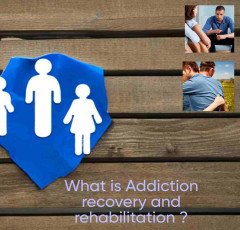
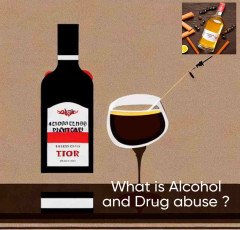
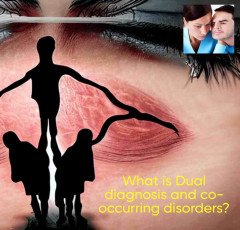

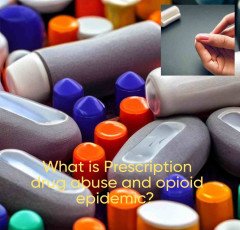
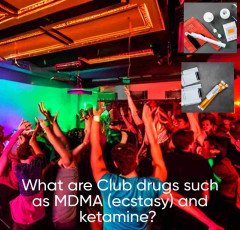









 Hello Theme
Hello Theme  The Click Engine
The Click Engine  Unlimited access to classes on illustration, photography, design, film, music
Unlimited access to classes on illustration, photography, design, film, music  The Secret Email System
The Secret Email System  NordPass
NordPass  Women Fashion
Women Fashion  ASUS Laptop
ASUS Laptop  Online Marketing
Online Marketing  Top Rated From Amazon
Top Rated From Amazon  Acer Laptop
Acer Laptop  Only For The United States
Only For The United States  Best Selling Books
Best Selling Books  SEO Checklist
SEO Checklist  TitTok Revolution
TitTok Revolution  Amazon Best Selling Products
Amazon Best Selling Products  BEST SELLER TOP10
BEST SELLER TOP10  Favorite Company (Cuelinks)
Favorite Company (Cuelinks)  SOFAS
SOFAS  One World Collection
One World Collection  Smart Doorbell
Smart Doorbell  Artificial Intelligence
Artificial Intelligence  NordVPN
NordVPN  NordLocker
NordLocker  RPM 3.0
RPM 3.0  Hot Bags For Pain Relief
Hot Bags For Pain Relief  Graphics & Design
Graphics & Design  Creative Brief For Video Shoot
Creative Brief For Video Shoot  Online Technology Classes
Online Technology Classes  Best Home Appliances
Best Home Appliances  ELECTRONIC ACCESSORIES
ELECTRONIC ACCESSORIES  Men Clothing
Men Clothing  Unreal Engine 5 For Beginners Learn The Basics Of Virtual Production
Unreal Engine 5 For Beginners Learn The Basics Of Virtual Production  Best Sellers On Amazon
Best Sellers On Amazon  Best Robotic Vacuum Cleaners
Best Robotic Vacuum Cleaners  All Wireless Products
All Wireless Products  1150+Trendy kids coloring pages Bundle
1150+Trendy kids coloring pages Bundle  Sennheiser
Sennheiser  ASPINAL LONDON
ASPINAL LONDON 
















